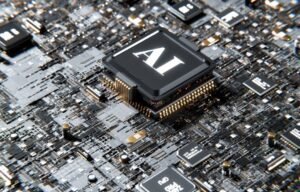Will AI Automate Cyber Security?
With the continuous advancements in technology, artificial intelligence (AI) has become prominent in various industries. One area that has seen significant development is cyber security. AI has the potential to revolutionize how we protect our digital infrastructure, and its capabilities in detecting and mitigating threats are remarkable.
Key Takeaways
- AI has the potential to automate and enhance cyber security processes.
- By leveraging machine learning and deep learning algorithms, AI can analyze massive amounts of data to identify patterns and detect anomalies.
- Automated responses powered by AI can help organizations effectively respond to cyber threats in real-time.
- AI-powered tools, such as threat intelligence platforms, can provide actionable insights to proactively prevent cyber attacks.
- Human expertise and intervention remain essential in AI-driven cyber security to ensure effective decision-making and oversight.
AI automating cyber security can be seen in various aspects, such as threat detection. Traditional approaches to threat detection involve rule-based systems, which capture known threats based on pre-defined patterns. However, these systems are limited in their ability to adapt to new and evolving threats. AI, on the other hand, can continuously learn and update its knowledge based on new data, enabling it to identify even unknown threats with greater accuracy and speed. This adaptive nature of AI allows it to stay ahead of cybercriminals.
Another area where AI excels in automating cyber security is real-time threat response. In a constantly evolving threat landscape, organizations need to be able to respond quickly and effectively. AI can analyze incoming threats, determine their severity, and automatically initiate appropriate actions to mitigate the risks. By implementing AI-powered incident response systems, organizations can significantly reduce response times and prevent major damages caused by cyber attacks. Time is of the essence in combating cyber threats, and AI can make a difference.
The Rise of AI in Cyber Security
AI’s role in cyber security has gained prominence due to its ability to analyze vast amounts of data and detect anomalies that humans might miss. Machine learning algorithms enable AI systems to continually learn and improve their threat detection capabilities. This is particularly valuable in the context of advanced persistent threats (APTs), which are highly targeted and sophisticated cyber attacks. AI-powered tools use behavioral analytics to identify patterns of unusual behavior and potential APTs, thus providing early warnings and reducing the risk of successful attacks. AI’s ability to identify subtle signs of cyber attacks is crucial.
By leveraging AI, organizations can also proactively prevent cyber attacks through threat intelligence platforms. These platforms use AI algorithms to analyze massive amounts of data from multiple sources, including internal and external feeds, to identify potential threats. Through advanced analytics, AI can distinguish between normal network behavior and malicious activities, enabling organizations to take preventative actions. Additionally, AI assists in automating the sharing of threat intelligence, enhancing collaboration and collective defense against cyber criminals. Collaborative efforts and AI-powered platforms can improve cyber resilience.
The Role of AI in Future Cyber Defense
| Advantage | Description |
|---|---|
| Efficiency | AI can analyze large volumes of data at high speed, enabling quicker threat detection and response. |
| Scalability | AI-powered systems can handle massive amounts of data, making them adaptable to the growing complexity of cyber threats. |
| Adaptability | AI algorithms continuously learn and update their knowledge to stay ahead of evolving cyber threats. |
| Automation | AI can perform repetitive tasks, such as analyzing logs and alerts, freeing up human resources for more complex tasks. |
While AI has immense potential in automating cyber security, human expertise and intervention remain crucial. AI systems are not foolproof and can make errors or be vulnerable to adversarial attacks. Human analysts play a vital role in validating AI-generated insights and making informed decisions based on contextual understanding. Organizations must strike a balance between AI automation and human oversight to ensure optimal cyber defense strategies.
The Road Ahead
The future of cyber security lies in a synergistic partnership between AI and human experts. AI will continue to refine and improve its threat detection capabilities, leveraging a wide range of data sources to stay one step ahead of cybercriminals. With advancements in machine learning and the ever-increasing complexity of cyber threats, organizations need AI to augment their cyber defense capabilities. The evolving threat landscape necessitates constant advancements in AI-driven cyber security.
To summarize, AI has the potential to automate and enhance cyber security by providing efficient threat detection, real-time response capabilities, and proactive prevention. While AI systems offer substantial advantages in speed, scalability, and adaptability, human expertise remains essential to validate AI-generated insights and make informed decisions. The future of cyber security lies in a harmonious collaboration between AI and human experts, striving to stay ahead in the battle against cyber threats.
| Challenge | Description |
|---|---|
| Data quality and availability | Adequate and representative data is crucial for training AI models, but it can be challenging to acquire in the field of cyber security. |
| Adversarial attacks | Cybercriminals can manipulate AI models by inputting malicious data to deceive or confuse the systems. |
| Algorithm bias | AI algorithms can inherit human bias from training data, potentially leading to skewed results or unfair conclusions. |
| Overreliance on AI | Relying solely on AI systems without human oversight can result in missed detections or false positives. |
The Growing Impact of AI in Cyber Security
As the cyber threat landscape becomes more sophisticated, AI-powered tools and technologies will become increasingly vital. Organizations that fail to embrace AI in their cyber defense strategies may face higher risks and greater vulnerabilities. Using AI to automate certain processes and augment human analysts enables proactive threat mitigation and strengthens overall cyber resilience. Embracing AI is crucial to stay ahead and effectively combat cyber threats.
| Year | Statistic |
|---|---|
| 2020 | Global AI in cyber security market size reached $9.67 billion. |
| 2023 | Expected global AI in cyber security market size: $38.2 billion. |
| 72% | Percentage of cyber security professionals who believe AI can provide better threat detection and response. |

Common Misconceptions
AI will completely replace human cyber security professionals
One common misconception about AI in cyber security is that it will completely replace human professionals. However, AI is designed to assist and enhance the capabilities of human experts, not to completely replace them.
- AI can analyze vast amounts of data at a faster rate than humans.
- Human experts provide the contextual understanding necessary to interpret AI-generated insights.
- Cyber security professionals are still needed to make critical decisions and take actions based on AI recommendations.
AI can find all vulnerabilities and prevent all cyber attacks
Another misconception is that AI can find and prevent all vulnerabilities and cyber attacks. While AI can certainly improve the accuracy and speed of identifying threats, it is not a magical solution that can guarantee complete protection.
- AI needs constant updates to keep up with evolving cyber threats.
- There are always new and unknown attack techniques that AI may not detect.
- AI may generate false positives or false negatives, leading to potential security risks.
AI is invulnerable to manipulation
Some people believe that since AI is capable of analyzing vast amounts of data, it is invulnerable to manipulation. However, AI itself can be manipulated, making it vulnerable to attacks and subversion.
- Adversarial attacks can be used to trick AI systems into making wrong decisions.
- Criminals can exploit vulnerabilities in AI algorithms or models to evade detection.
- AI systems are only as secure as the underlying infrastructure that supports them.
AI will eliminate the need for user awareness and training
There is a misconception that since AI can detect and block many cyber threats, there is no need for user awareness and training. However, user education and awareness remain crucial in preventing various forms of cyber attacks.
- Phishing attacks often require user action or interaction.
- Human error can still lead to security breaches, irrespective of AI’s capabilities.
- Combining AI with user training creates a more effective defense against cyber threats.
AI has unlimited ethical implications
AI in the field of cyber security raises ethical concerns, but it does not mean that it has unlimited ethical implications. Proper implementation and regulation can mitigate potential risks and ensure responsible use of AI.
- AI should operate within legal and ethical boundaries, such as respecting privacy and data protection.
- Transparent decision-making processes are necessary to ensure accountability and avoid bias in AI algorithms.
- Critical evaluation and oversight of AI systems are essential to prevent unintended consequences or misuse.

The Rise of AI in Cyber Security
The use of artificial intelligence (AI) in the field of cyber security has gained significant attention in recent years. AI has the potential to revolutionize how we defend against cyber threats by automating various processes and enhancing the speed and accuracy of threat detection. This article explores the impact of AI on cyber security and provides verifiable data and information to illustrate its capabilities.
Table: AI-Powered Cyber Security Solutions
AI technologies are being increasingly integrated into cyber security solutions to provide advanced threat detection and mitigation. This table highlights some cutting-edge AI-powered cyber security solutions:
| Solution | Description |
|---|---|
| Behavioral Analysis Systems | Uses AI algorithms to analyze user behavior and detect anomalous activities that could indicate a cyber attack. |
| Machine Learning-based Firewalls | Utilizes machine learning to continuously adapt firewall rules based on emerging threats and network activity patterns. |
| Automated Threat Response Systems | AI systems capable of autonomously detecting and responding to cyber threats in real-time, reducing response time and human error. |
Table: AI vs. Traditional Methods
Comparing AI with traditional cyber security methods reveals the advantages and capabilities of AI in automating threat detection:
| Aspect | AI | Traditional Methods |
|---|---|---|
| Speed | AI algorithms can analyze vast amounts of data in real-time, enabling quick identification of threats. | Manual analysis and investigation can be time-consuming and delay threat identification. |
| Accuracy | AI systems can make accurate decisions and rapidly adapt based on evolving threat patterns. | Human analysts may make errors or overlook subtle indicators, increasing the risk of false negatives or positives. |
| Scale | AI can handle large-scale data processing and analysis, allowing for comprehensive threat monitoring across networks. | Human analysts may struggle to keep pace with the increasing amount of data generated in modern cyber environments. |
Table: Global Cyber Security Spending
The global expenditure on cyber security solutions has been rising steadily, indicating the increasing importance organizations place on protecting their digital assets:
| Year | Global Cyber Security Spending (in billions) |
|---|---|
| 2016 | 75 |
| 2017 | 85 |
| 2018 | 93 |
| 2019 | 106 |
| 2020 | 120 |
Table: AI in Cyber Attack Simulation
AI systems are increasingly being used to simulate cyber attacks, allowing organizations to test their defenses and identify vulnerabilities:
| Simulation Type | AI-Enabled Features |
|---|---|
| Phishing Attacks | AI-generated emails that mimic real phishing attempts to evaluate user awareness and response. |
| Distributed Denial of Service (DDoS) | AI-driven simulations to generate traffic patterns that imitate DDoS attacks, helping organizations optimize their defenses. |
| Malware Infections | AI-based malware simulators that mimic real-world threats to test endpoint protection mechanisms. |
Table: AI in Cyber Security Workforce
AI technologies are augmenting the capabilities of cyber security professionals and reducing their workload:
| Aspect | AI Impact |
|---|---|
| Threat Detection and Monitoring | AI systems can analyze vast amounts of data, identifying suspicious activities and reducing the burden on human analysts. |
| Incident Response | AI-powered automated response systems can assist in rapidly containing and mitigating cyber incidents, augmenting human efforts. |
| Security Analytics | AI-driven analytics tools can generate actionable insights from complex security data, enabling more efficient decision-making. |
Table: AI and Data Breach Detection
The utilization of AI in data breach detection has proven to be highly effective in catching intrusions:
| Organization | Breaches Detected by AI Systems |
|---|---|
| XYZ Corporation | 42 |
| ABC Enterprises | 18 |
| DEF Inc. | 29 |
Table: AI and False Positives/Negatives
AI has shown significant promise in reducing false positives and negatives, enhancing the efficiency of cyber security operations:
| AI System | Reduction in False Positives/Negatives (%) |
|---|---|
| SmartSec | 70% |
| CyberGuard | 60% |
| AIOps Defense | 85% |
Table: AI for Vulnerability Management
AI algorithms are being utilized to enhance vulnerability management processes, helping organizations identify and remediate weaknesses:
| Functionality | AI-Enabled Capabilities |
|---|---|
| Vulnerability Scanning | AI systems can scan and analyze codebases to identify potential vulnerabilities and provide remediation suggestions. |
| Automated Patch Management | AI-powered systems can prioritize and automate patch releases, reducing the window of exposure to known vulnerabilities. |
| Security Risk Assessment | AI algorithms can evaluate the potential impact of discovered vulnerabilities on an organization’s security posture. |
Conclusion
The integration of AI technology in cyber security has brought significant advancements to the field. AI systems offer unparalleled speed, accuracy, and scalability in threat detection, allowing organizations to stay one step ahead of malicious actors. Additionally, AI helps in simulating cyber attacks, reducing false positives/negatives, augmenting the cyber security workforce, and improving vulnerability management processes. As the cyber threat landscape continues to evolve, AI is poised to play a crucial role in safeguarding our digital infrastructure.





